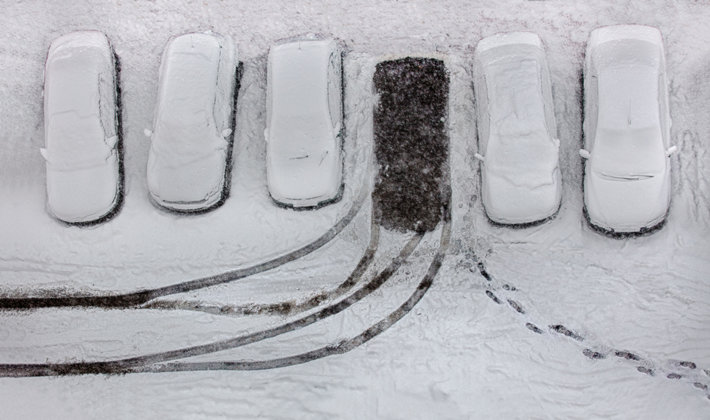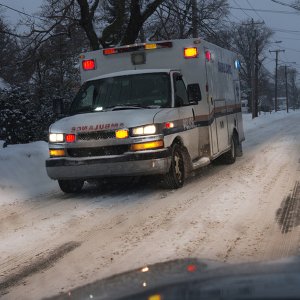Drug and Alcohol Risk and Cold Weather

Does life change for people who use drugs and alcohol when the season changes and winter weather sets in? Actually, yes. Risk factors spike considerably. During the winter months:
- Addicts are more likely to use drugs on their own.
- They are more likely to get into a car accident.
- They are more likely to overdose.
- They are more likely to experience hypothermia (than non-users).
These are just some of the added risks that addicts face when using drugs and alcohol during the colder months of late autumn, winter, and early spring.
How do these risk factors come about? And what can be done about them?
Additional Risk Factors of Drug and Alcohol Use During Winter
There is always a serious degree of risk in drinking and drug use. That fact is indisputable. But environmental factors can have an impact on degrees of risk. For example, when an addict drinks or uses drugs during the winter, their odds of suffering a particularly bad experience or even dying do increase dramatically.
There are several reasons for this. For one, the winter months force people indoors more so than any other time of year. While inside, addicts are more likely to have time on their hands to use drugs, much in the same way that many people tend to exercise less and eat more during the winter. By itself, the additional time spent indoors is a risk factor.

Another risk factor is the increased risk of car accidents. Driving under the influence of drugs and alcohol is extremely dangerous, but icy roads and inclement weather further increase the risk. People who use mind-altering substances and then get behind the wheel of a car and drive on slick roads put their lives and the lives of other motorists at risk.
One risk factor is the effect that winter has on some people’s mental state. Many people are more likely to feel depressed and sad during winter, partly due to a lack of vitamin D from the sun, partly because of the cold weather and other factors. This unpleasant mental state has the potential to precipitate drug use and drinking.
Another risk factor is the physiological effect that cold weather has on people who use drugs and alcohol. For example, for both alcohol addicts and opiate addicts, cold weather harms their bodies and may increase the risk of damaging, even lethal, health outcomes.
Yet another risk factor is that, when one drinks or uses drugs during cold weather, the numbing effect of the cold serves to diminish the user’s perceptions of the physiological impact of the substance that they are consuming. This tends to lead to more drug use or drinking, as the individual will likely miss physiological warning signs due to the cold weather’s effect on their nervous and sensory systems.
Alcohol Consumption and Cold Weather
One study published in the Wiley Digital Archives found irrefutable evidence that alcohol consumption spikes during cold weather. Not only is this an issue of concern for countries that experience cold winters, but it is especially concerning for states and regions which have considerably lower year-round temperatures than other areas.
“When you drink, it dilates the peripheral blood vessels near your skin, which means more blood–and heat–flows to these vessels. That takes blood and heat away from the core of your body.”
Drinking alcohol during winter also increases one’s risk for hypothermia and other cold weather-related ailments. Professor Colin Drummond, head of the Section of Alcohol Research at King’s College London, summed this up in a British research paper on the subject. “When you drink, it dilates the peripheral blood vessels near your skin, which means more blood – and heat – flows to these vessels. That takes blood and heat away from the core of your body. So while it feels like you’re warm because your skin is warm, your vital organs aren’t as warm as you might think they are. If you then go out in the cold after drinking, because you’ve got a lot of heat on the periphery of your body, you can lose heat very easily and quickly. And that can be dangerous.”
Opioid Overdose—A Heightened Risk During Cold Weather
The most significant risk factor connected to using drugs during the winter months is the increased risk of overdose. According to a study published by Brown University’s School of Public Health, there is a direct correlation between cold snaps and spikes in overdose deaths. The researchers found a 25 percent increase in fatal overdoses after periods of freezing temperatures over days where temperatures stayed around 50 degrees Fahrenheit. The study compared numbers of overdose deaths on colder days during winter and overdoses on somewhat warmer days. There was an irrefutable connection between increased overdoses and much colder days.
But why the correlation?
Researchers are still speculating as to the cause. There may be a few factors to consider. For one, opiate addicts are more likely to stay at home and use drugs on their own during cold weather (as opposed to leaving their homes to use drugs with other users). Addicts who use drugs on their own are always at increased risk of an overdose fatality, as no one will be there to administer emergency medical assistance during such an overdose. Simply the fact of staying at home and using drugs alone makes drug use considerably more dangerous.
Another factor is the effect that opioids have on cardiovascular and respiratory function combined with cold weather. During an opiate overdose, one’s heart and lungs begin to slow down, coming to a full stop in the case of a fatal overdose. Being in freezing weather already has this same effect to some extent on the human body, potentially making overdoses more likely to be deadly when the user is already very, very cold.
Seeking Help for a Loved One—Why Rehabilitation is Crucial
With the temperatures dropping as the season changes, those currently using drugs and alcohol are at increased risk. If you know someone addicted to drugs and alcohol, you must do everything you can to get them help. Don’t wait until “next year.” There may not be a next year for them.
Please call Narconon today to take the first step towards helping your loved one get better.
Sources:
- https://aasldpubs.onlinelibrary.wiley.com/doi/full/10.1002/hep.30315
- https://www.drinkaware.co.uk/advice/staying-safe-while-drinking/alcohol-and-cold-weather
- https://www.brown.edu/news/2019-06-17/cold-overdoses
- http://dx.doi.org/10.1097/EDE.0000000000001041
Reviewed and Edited by Claire Pinelli, LADC, CCS, ICAADC, MCAP


 ®
®